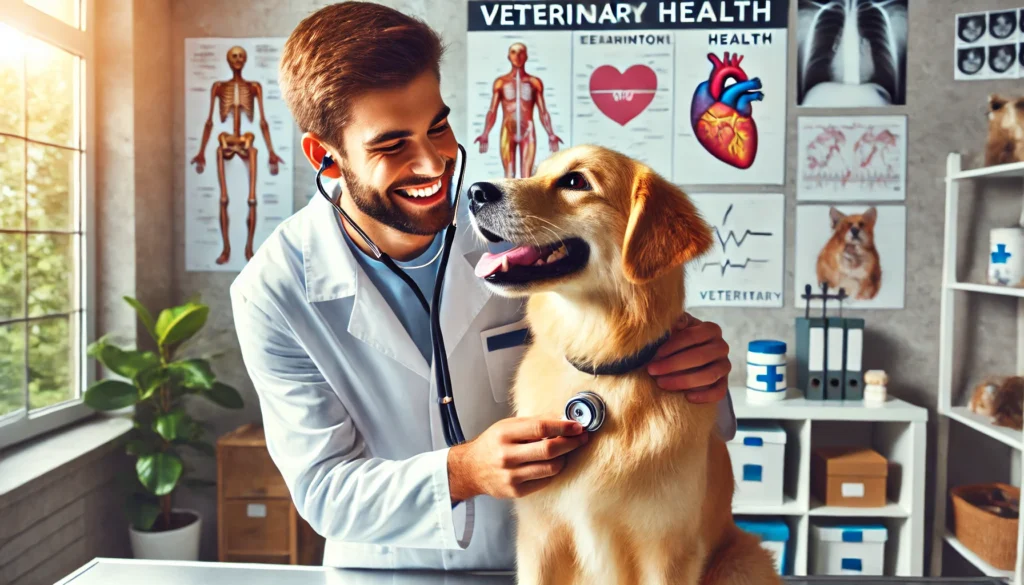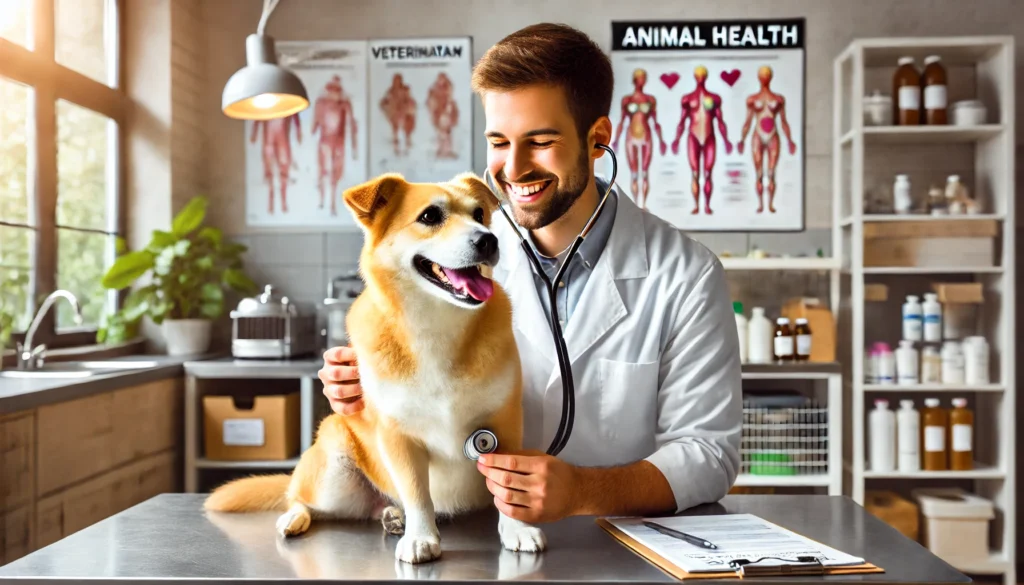Having a dog is one of the most rewarding experiences in life, but with this joy also comes the responsibility of taking care of your four-legged friend's health. Preventing and treating common illnesses in dogs is essential to ensuring they lead long, happy and healthy lives. In this article, we will explore the most common diseases among dogs, how to prevent them and the treatment options available, all with a careful and informed look from a veterinary specialist.
Common Diseases in Dogs
Dogs, like humans, are susceptible to various diseases throughout their lives. Knowing these diseases and being aware of the symptoms can make all the difference in your pet's health. Below, we detail some of the most common diseases:
Canine Parvovirus
Parvovirus is a highly contagious viral disease that mainly affects puppies. Symptoms include vomiting, diarrhea (often bloody), lethargy and loss of appetite. Prevention is achieved through appropriate vaccination, which must be started in the first weeks of the dog's life and reinforced annually.
Distemper
Another serious viral disease, distemper, affects the respiratory, gastrointestinal and nervous systems of dogs. Symptoms range from eye and nasal discharge to seizures. Vaccination is the best form of prevention, and, unfortunately, treatment can be long and complex, often requiring intensive care.
Leptospirosis
Transmitted through rodent urine, leptospirosis can cause fever, muscle pain, vomiting, diarrhea and kidney failure. Prevention includes vaccination and control of rodents in the dog's environment. Treatment usually involves antibiotics and supportive care.
Tick Disease (Ehrlichiosis and Babesiosis)
Ticks are vectors of several diseases, including ehrlichiosis and babesiosis. Both can cause symptoms such as fever, apathy, weight loss and anemia. Prevention includes regular use of antiparasitics and daily inspection of the dog to remove ticks. Treatment may involve antibiotics and, in severe cases, blood transfusions.
Prevention is the Best Medicine
Prevention is always preferable to treatment. Keeping your dog's vaccinations up to date, using antiparasitics regularly, and providing a balanced diet are crucial measures to avoid illnesses. Furthermore, regular visits to the veterinarian are essential to detect and treat any health problem early.
Vaccination
Vaccination is the first line of defense against many serious diseases. Follow your veterinarian's recommended vaccination schedule, which generally begins in the first few weeks of the puppy's life and continues with annual boosters.
Antiparasitics
The use of antiparasitics is essential to protect your dog against fleas, ticks and worms. There are several products on the market, from collars to oral and topical medications. Consult your veterinarian to choose the best option for your pet.

Food
A quality diet strengthens your dog's immune system. Choose balanced diets and, if possible, consult a veterinary nutritionist to create a personalized diet that meets your animal's specific needs.
Hygiene and Environment
Maintaining the hygiene of your dog and the environment where he lives is crucial to preventing diseases. Regular baths, teeth brushing and ear cleaning are basic care that helps keep your pet healthy.
Treatment of Canine Diseases
Despite all preventive care, sometimes our dogs can still get sick. When this happens, a quick diagnosis and appropriate treatment are essential for recovery.
Early Diagnosis
Taking your dog to the vet at the first signs of illness is crucial. Early diagnoses generally result in more effective and less invasive treatments. Don't ignore symptoms such as lethargy, loss of appetite, vomiting, diarrhea or behavioral changes.
Available Treatments
Treatment will depend on the disease diagnosed. Viral illnesses like parvovirus and distemper may require intensive care and support for symptoms, while bacterial infections like leptospirosis are usually treated with antibiotics. In the case of parasites, specific antiparasitic treatments will be prescribed.

Palliative care
In cases of chronic or terminal illnesses, palliative care aims to provide the dog with quality of life. This may include pain medication, special food, and adjustments to the environment for greater comfort.
Importance of Regular Check-ups
Maintaining a routine of regular check-ups is vital for your dog's health. These appointments allow the veterinarian to monitor the animal's general health, detect problems early and adjust any necessary treatment.
Routine tests
During check-ups, your veterinarian may perform blood, fecal, urine and other diagnostic tests to ensure that everything is ok with your pet. These tests help detect silent diseases that do not present obvious symptoms.
Dental Consultations
Dental health is often overlooked, but it is essential. Dental disease can lead to more serious problems if left untreated. Brushing your dog's teeth regularly and having professional cleanings when necessary are best practices.
Weight Tracking
Your dog's weight is an important indicator of his health. Both obesity and malnutrition can lead to serious health problems. Monitor your pet's weight and adjust the diet as necessary, always under veterinary guidance.
Conclusion
Taking care of your dog's health requires attention, love and knowledge. Preventing and treating common diseases in dogs is an ongoing task that involves vaccines, adequate nutrition, use of antiparasitics, and regular check-ups. Remember that prevention is always the best medicine, and being aware of the signs that something is not right can make all the difference. Your dog trusts you to keep him healthy and happy, and with this information, you are well equipped to do just that.
